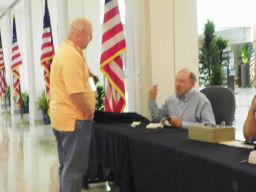
As an analyst and manager at the Central
Intelligence Agency for many years, Worthen specialized in the assessment of
foreign leaders. The profiles he and his colleagues wrote were used to prepare
American diplomats and other policymakers for encounters with their
counterparts in governments around the world.
The most interesting aspect of this work was in determining how the personality
of a foreign leader affected his or her political behavior. For example, it is
hard to understand the policies of China’s government in the 1950s and 1960s
without knowing something about the personality of Chairman Mao. And Libya’s
actions on the international stage during the past forty years are not fully
comprehensible without an understanding of the inner world of long-time
President Moamar Qaddafi.
Since retiring from the CIA, Worthen has sought to apply that same approach to
the study of American politicians. His first book, Governor
James Rolph and the Great Depression in California, was about a man who was
known less for his mastery of policy than for his humanity, personal magnetism,
and sunny optimism. As mayor of San Francisco, Rolph deployed the politics of
personality so well that he was elected to five terms in office. But his
charismatic style was less effective on the larger stage of state politics, and
his administration was unable to address the root causes of the economic
calamity of the 1930s.
Twenty years later, four Republicans with vastly different personal styles
dominated California’s political landscape. Worthen's second book, The
Young Nixon and His California Rivals: Four California Republicans Eye the
White House, 1946-1958, tells the story of Richard Nixon’s rivalry with
Governor Earl Warren, Senator William Knowland, and Governor Goodwin Knight.
The personalities of these four men were an incendiary mix, and they provided
the motivating force for their twelve-year struggle for power.
Worthen's next book will analyze the power relationships among the men
closest to President Dwight Eisenhower. The many strong personalities in Ike’s
Cabinet and White House staff exerted a powerful influence on US domestic and
foreign policies in the 1950s.
Photo Credits: Richard Nixon Presidential Library, Yorba Linda, CA


